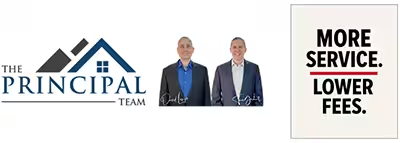Selling your home? Don’t leave money on the table. While market forces are beyond your control, smart sellers plan ahead to earn the most amount of money possible. The difference between amateur and expert sellers often comes down to three critical areas: selling for top dollar, slashing unnecessary costs, and investing only in what actually pays off.
Sell For the Most Amount of Money
Price It Right From the Start
Overpricing is a costly mistake. Homes that sit on the market don’t just waste time – they cost serious money. Overpriced listings get stale, generate fewer showings, and ultimately sell for less than they would have with smart initial pricing. Savvy sellers analyze the competition and recently sold homes, price their property to move, and create bidding wars.
Master the Art of First Impressions
Buyers often decide in the first 30 seconds. Your curb appeal either makes money or costs money – there’s no middle ground. Fresh mulch, clean windows, and a power-washed driveway aren’t optional. Inside, clutter kills deals and dirt destroys value. Stage it, clean it, light it up.
Time Your Sale Strategically
Timing isn’t everything – but it’s worth thousands. Spring sellers get premium prices because buyer demand peaks. Winter sellers? They’re competing with holiday distractions and smaller buyer pools. If you have flexibility, use it.
Create Competition Among Buyers
Multiple offers = maximum money. Price aggressively to attract serious buyers, then let them fight it out. One motivated buyer pays asking price or below. Three motivated buyers pay over asking price.
Negotiate Like a Pro
Every negotiation point affects your bottom line. Know which battles to fight and which to walk away from. Buyers will test you on price, repairs, closing costs, and timing. Have your limits set before you start, and don’t get emotional about counteroffers. Sometimes the best negotiation tactic is being willing to say no to a lowball offer – it shows you’re serious about your price. However, in our experience, we’ve seen that the first or second offer you receive is often the highest offer you will receive.
Pay the Least Amount Possible
Negotiate Agent Commission Strategically
Commission is your biggest expense – and not every agent charges the same amount or provides the same expertise. Don’t automatically accept “standard” rates. The Principal Team charges lower rates than many other agents and comes to the table with expertise that’s hard to match. Never pay premium rates for mediocre service.
Minimize Concessions and Credits
Every concession dollar comes straight out of your pocket. Present your home in move-in condition to eliminate repair requests. When buyers do ask for credits, get your own contractor quotes and consider doing the work yourself. Your $500 repair might cost you $2,000 in buyer credits.
Shop Around for Services
The first quote isn’t always your best deal. Get multiple bids for repairs or other services you’re paying for. Those “small” fees add up to real money.
Understand Your Tax Implications
Know your capital gains situation before you list. Two years of owning your primary residence gets you major tax exclusions. Bad timing could cost you thousands in unnecessary taxes.
Invest in What Pays Off
Focus on High-Impact, Low-Cost Improvements
Not all improvements are created equal. Smart money goes toward changes that deliver maximum return:
- Fresh paint (neutral colors only)
- Upgraded light fixtures
- Updated cabinet hardware
- Contemporary fixtures like ceiling fans and faucets
- Professional deep cleaning
- Minor bathroom refreshes
These changes cost hundreds but can add thousands to your sale price.
Avoid Over-Improving for Your Neighborhood
A $50,000 kitchen in a $200,000 neighborhood won’t pay off. Don’t over-invest beyond your market. Buyers won’t pay premium prices in average neighborhoods.
Consider Professional Home Preparation Services
Sometimes spending money makes money. A staging consultation or hiring a skilled handyman often delivers returns that dwarf the investment. Know when to DIY and when to hire pros.
Skip Major Renovations
Major renovations before selling rarely pay off. Unless your home has serious structural issues, avoid big projects. The time, stress, and cost of major work rarely delivers dollar-for-dollar returns. Focus on clean, bright, and move-in ready. One exception is refinishing your wood floors – that can pay off!
The Bottom Line
Maximizing your equity isn’t about hoping for the best – it’s about executing a plan. Price aggressively, present flawlessly, cut ruthlessly, and invest strategically. Every decision should pass one test: does this put more money in my pocket?
The difference between amateur and expert sellers can be tens of thousands of dollars. Don’t leave money on the table because you didn’t know better. Now you do.



